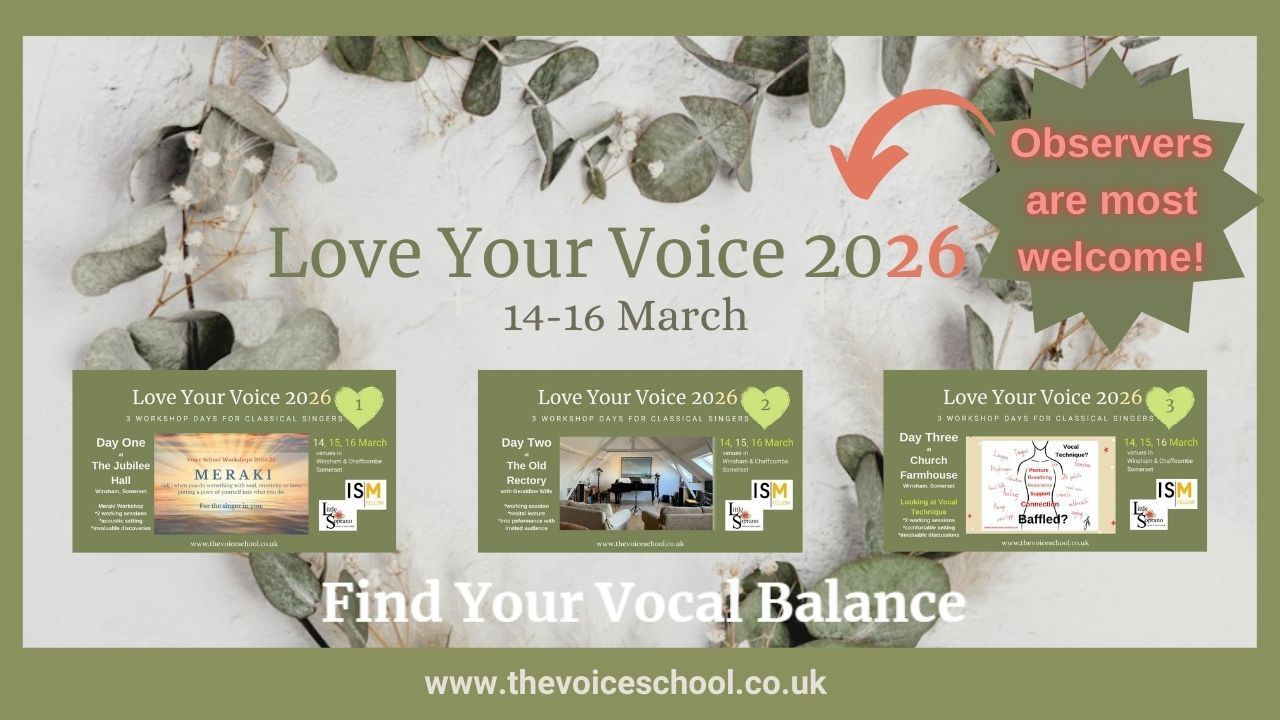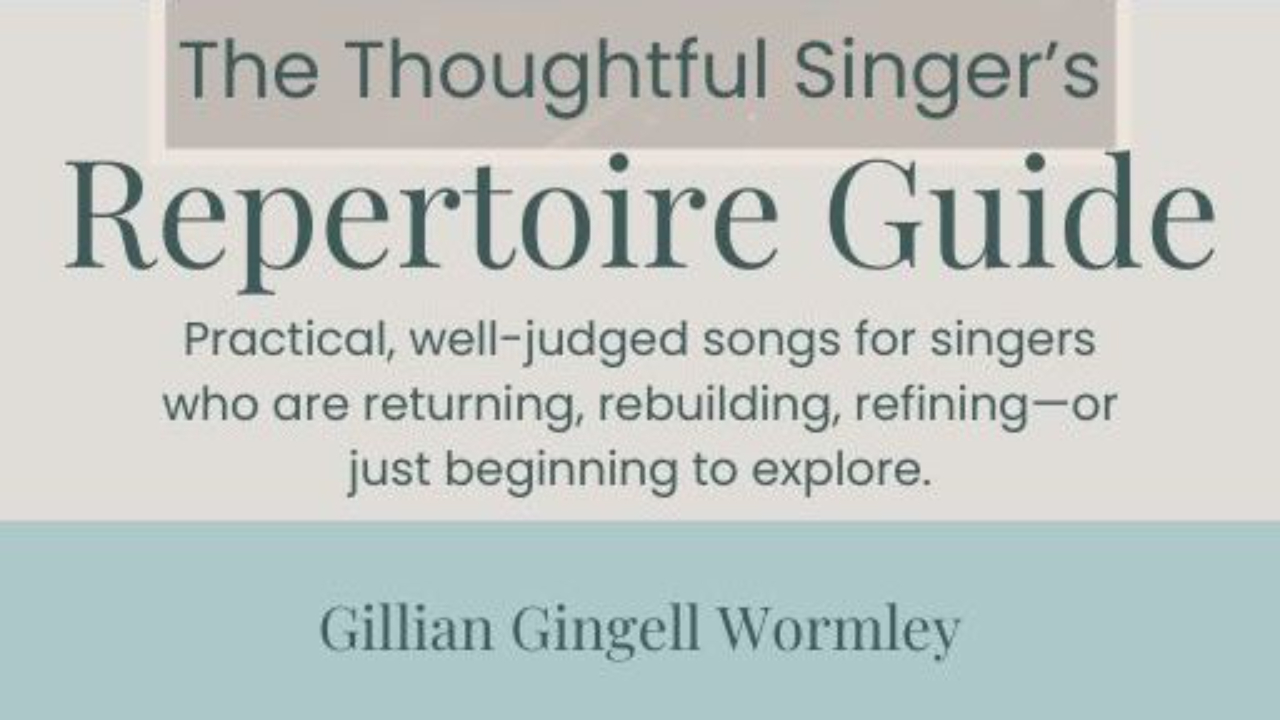Passaggio? What's that got to do with my vocal range?

Singers, are you well, and keeping in fine voice? All in good working order, sounding smooth and wonderful, with no cracking, yodelling or insecurities?
And, how about your range - confident about that? Let's discuss.
Passaggio problems
Passaggio (Italian pronunciation: [pasˈsaddʒo]) is a term used in classical singing to describe the transition area between the vocal registers.
Arguably the most vexing of singer’s issues, the passaggio justifiably earns its hard-to-handle reputation. Let me familiarise you with its workings and how it can be responsible for the limiting beliefs you hold about your vocal range.

What’s it all about?
Well ... what singers must do to avoid those tell-tale wobbly-sounding gear-changing areas in the voice, is to concentrate 100% on body alignment, keeping the throat open, and correctly balancing the airflow from the lungs to the point of contact with the vocal folds, which are brought together with a HIGH degree of sensitivity and control … all...
What makes you classical singer? Do you have stickability?
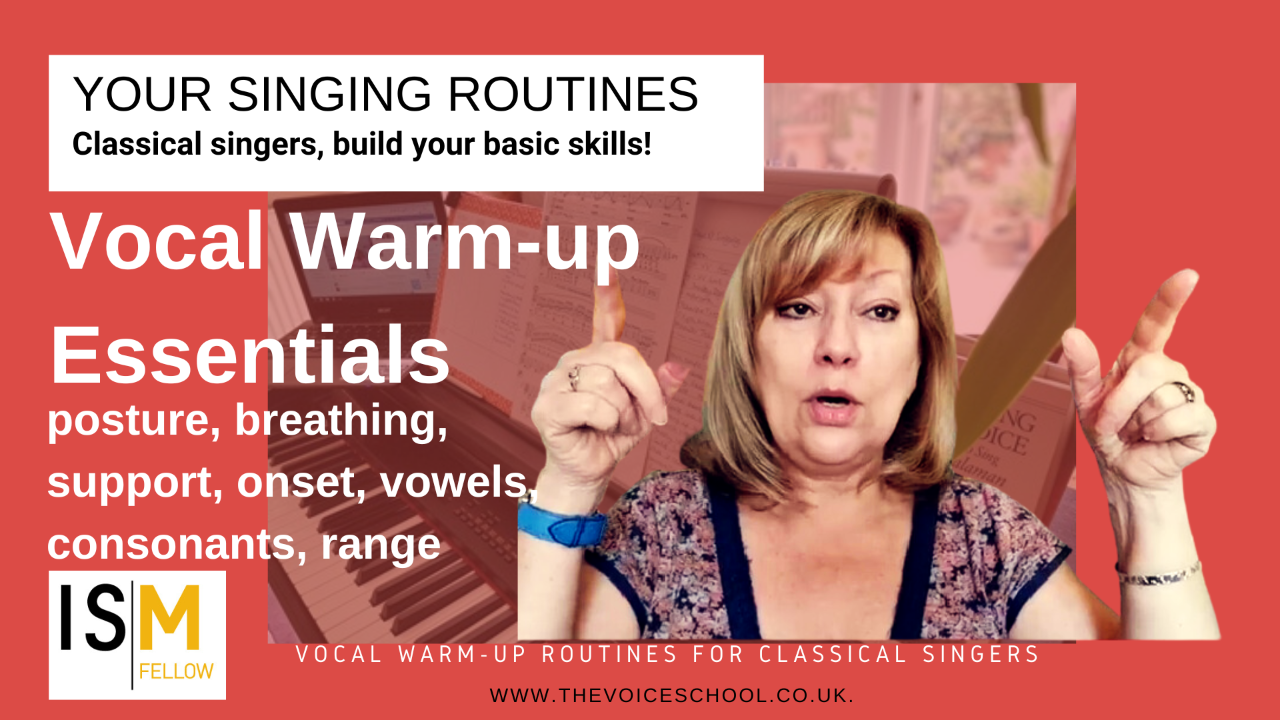
As a professional classical singer, I write about vocal technique a lot. Of course, I would, as I am also a voice teacher. I've come to where I am now through a very natural journey of my own - study, performance, more study, woven doggedly around my other life happenings.
Always a personal quest (no one was pushing me) - I have felt drawn along, pulled happily by my simple love of communicating through the physicality and marriage of words and music - and the need to do it better. It's an infectious love, that I have for many years sought to share with other like-minded souls, who have their own quest and who are curious too.
Where do you start?
As a professional musician with a lifetime of technical vocal learning behind me and a trusty ongoing pursuit of future perfection in front of me, I regularly invest in telling my students to be at ease with where they are on their vocal journey. At ease, but not too comfy. To forgive their vocal imperfections BUT also be inquisitive, and...
Classical Singers: journey toward your true vocal tone.

The Vocal Journey: never forget the basics
The only way to progress your vocal learning healthily is to maintain a consistent gentle warm-up routine, covering basic and essential vocal technique tools such as posture, breathing/airflow, onset, lip trills, and sirening. The magic 5, learning by repeatedly doing. Neuroplasticity working its magic.
This video-share is #4 in a playlist on my YouTube channel. It's taken from my singers' mentoring group 2020 teaching archive. Most weeks throughout the year I lead members online in a Saturday Morning Vocal Technique LIVE where we explore exercises and enjoy a lively discussion as we work.
Learning about #vocalnutsandbolts is not a sprint - and we should never assume we’ve reached the journey’s end. Our destination is always there, just on the horizon.
A fascinating journey which still holds my attention after all these years of teaching and learning.
We classical singers are understandably primarily pre-occupied with the sound th...
Voice worries: is your voice cracking up? Are nodules a concern?

Take care of your voice
I hope you took a look at the video - it's short, but packed with information.
Our unique voice is a valuable asset. It's like a personal brand that sets us apart from others. We should always embrace and cherish it because it's a reflection of our identity. And, we only have one, and it's worth protecting.
I well remember a defining moment in my career about 12 years ago where for the first time I felt unsure of what my voice was doing. It was mid-concert, and I was singing Mozart's Laudate Dominum. It wasn't exactly an out-of-body experience, but I felt like I was not vocally in control - my voice, normally so reliable, clear and sure, wavered for a moment. It's true I was stressed, and a bit pressured by life at that time - and my voice, for the first time faltered. I've never forgotten that moment since. Not nodules, but a sign that my voice was under stress and that I needed to take care.
Imagine those little vocal folds, pristine and perfect at birt...
Breathing & airflow for classical singers: learning the facts
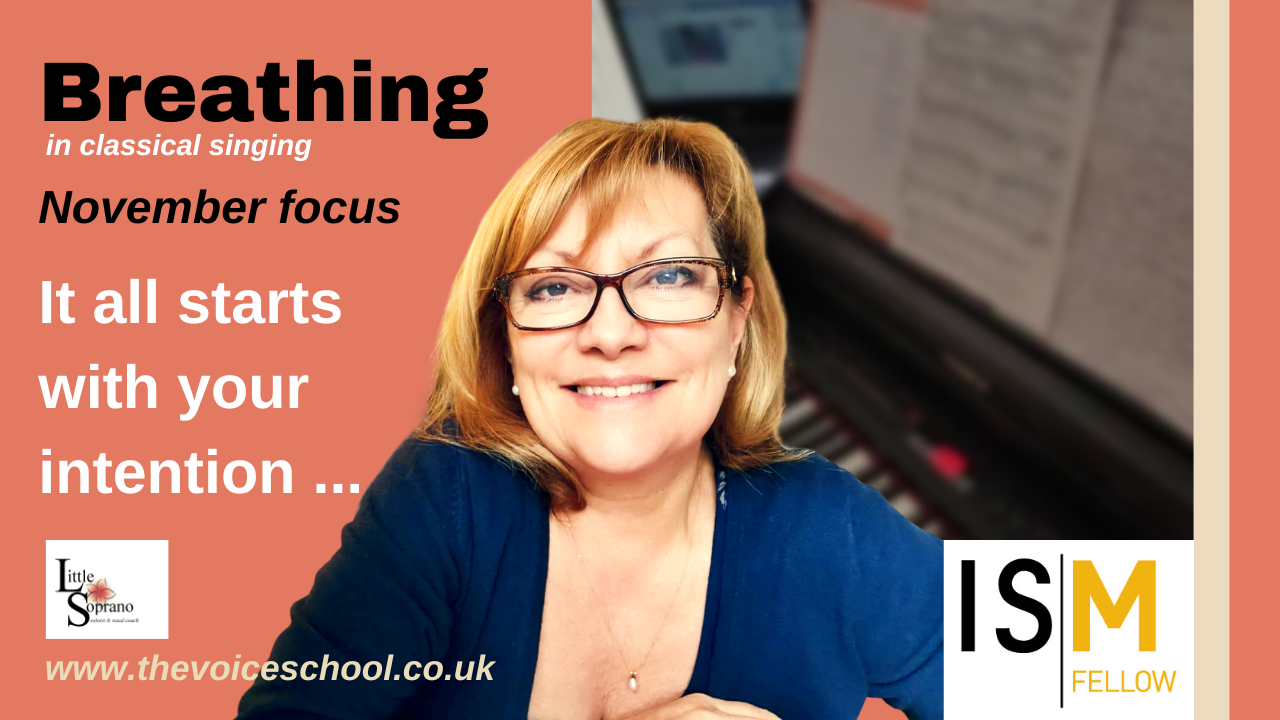
Shall we explore the fundamentals of breath and airflow in greater detail?
Proper airflow is a crucial element in achieving vocal excellence. However, to fully comprehend its significance and make advancements, it must be examined alongside the other 5Essentials of vocal technique.
Singers often think they need to control their breath by taking in large amounts of air and holding on it for as long as possible to nail a 4-bar phrase, a high note, or the final note. However, the truth is more complex than one might expect.
It usually comes down to knowing and understanding my suggested 5 basic principles. But here we are focusing on just one of those five… Airflow, not airb-l-o-w.
So, how do you feel about the following statement?
Onset: is yours breathy, glottal or balanced? Breathy = airflow occurs before glottis closes. Glottal = glottis closure completes before airflow begins. Balanced = co-ordinated action of muscle & breath i.e. … synchronised.
What is the main underlyi...
Singing is the path to well-being: balm for the soul.

Singing keeps me sane.
Quite literally. Singing has been and continues to be both my linchpin and my salvation. It may have been challenging to maintain the learning regime at tumultuous times, but I always have returned to music - to singing - to restore my sense of balance.
For centuries, humans have enjoyed vocalizing as a means of expression, connecting with others, and celebrating life. Singing, in particular, has been scientifically proven to have numerous health benefits. This article delves into the positive effects of singing on our well-being and emphatically emphasizes how this activity can significantly enhance our overall health and happiness.
It’s a question of balance
Singing restores my equilibrium. It lifts me up in unseen ways and gives me permission to engage with my inner self. It helps me express and communicate, share thoughts and even commemorate.

In 2001 I gave a concert to celebrate the life of my youngest daughter Alice, who had died earlier that year a...
Singers: 6 playlists to help improve your vocal skills
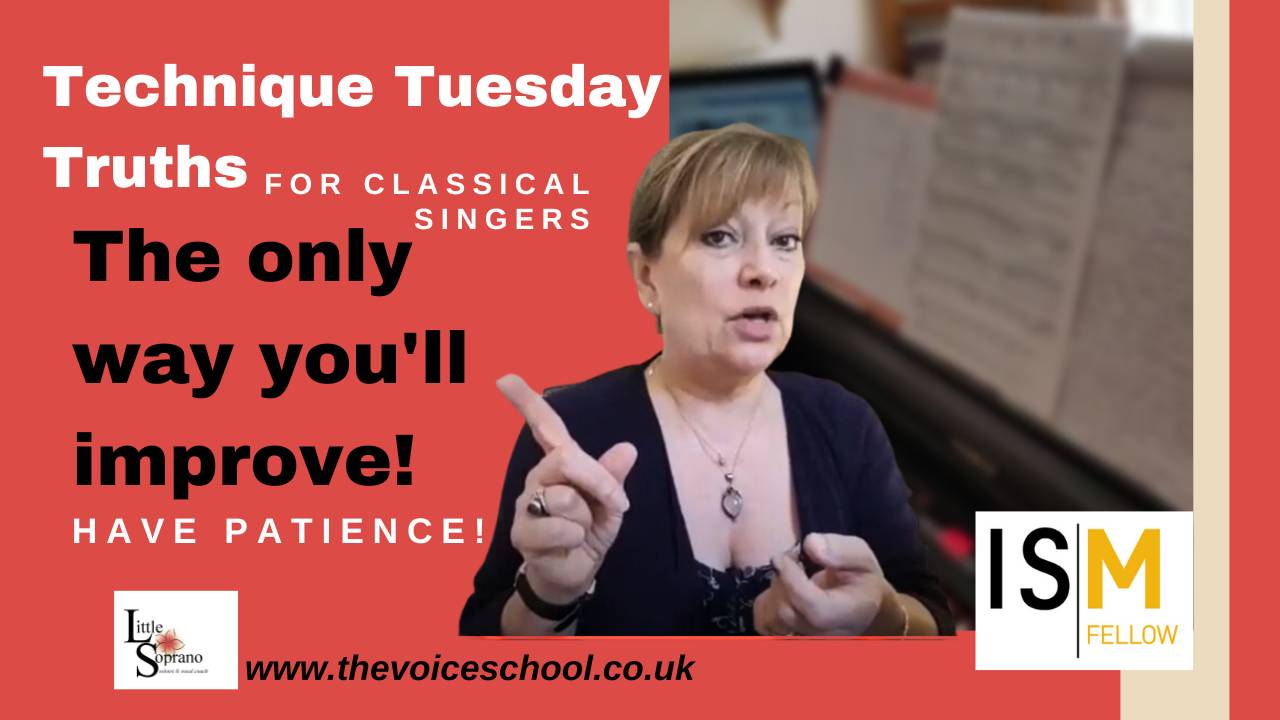
Did you know?
What if I told you that there are only a few very basic vocal ‘tools’ that you need to know about which will serve you well in every singing situation? Would you believe me? A good vocal sound is nearly always reliant on a firm grasp and knowledge of the basics. Simply explained in my free PDF companion guide to this article: Need Help with Singing Basics.
A simple fact
Getting to grips with or making improvements to your singing and the methods to achieve progress are all far easier and more accessible than you think.
Consider this: we all have a speaking voice and we utilise our vocal folds every single day, so you’re actually already familiar with how powering your voice from the inside out feels.
Learning to use your singing voice is just an extension of that same vocal process, using the same equipment.
The best way to ease your voice along healthily is to maintain a consistent gentle warm-up routine, covering the basic and essential vocal technique tools like...
Sound advice for singers: finding your authentic voice

Do you know where the root of your vocal problems lies?
Finding your authentic singing voice starts with the way you speak - as do all those little lifetime foibles we create along the way.
Look to the way you speak for weaknesses and physical stumbles - take care to know what they are so that they do not leach their way into how you produce your singing sound.
Fabulous article
I remember reading an article written by then VoiceCouncil writer Kathy Alexander following an interview with Speech-Language Therapist, Sue M Jones. In response to this question,
“Do you ever encounter singers who have an issue with their voice that stems from the way they talk?”
Sue confirmed that many singers experiencing problems with their singing voice actually have problems with excess muscle tension in the production of their speaking voice.
It’s easy to imagine a scenario where we are tempted to use more voice than we should; this, in turn, can lead to habitual constriction in the vocal...
Are you a solo singer? How do you know?

I know that you love to sing, because you're reading this post.
You may belong (or have done in the past) to choirs and small ensemble singing groups. Perhaps you even get the opportunity to sing solo for concerts occasionally. But, I also know that there are times when you feel like the experience could be better. You know that all this singing should be paying off, but strangely it's not.
Let's explore the difference between choral, ensemble, and solo singing... (I'm playing devil's advocate here... indulge me!)
Choral singing is the art of singing in a large-ish group. It can be a very rewarding experience, as it allows singers to come together en masse and create some of the world's most beautiful music. Choral singers must learn to blend their voices together and bend to the will and artistic direction of the conductor.
Ensemble singing is similar to choral singing, but it usually involves a smaller group of singers. Ensemble singers often have more individual responsibility, ...
Improve your classical singing voice: mind your Ps & Qs
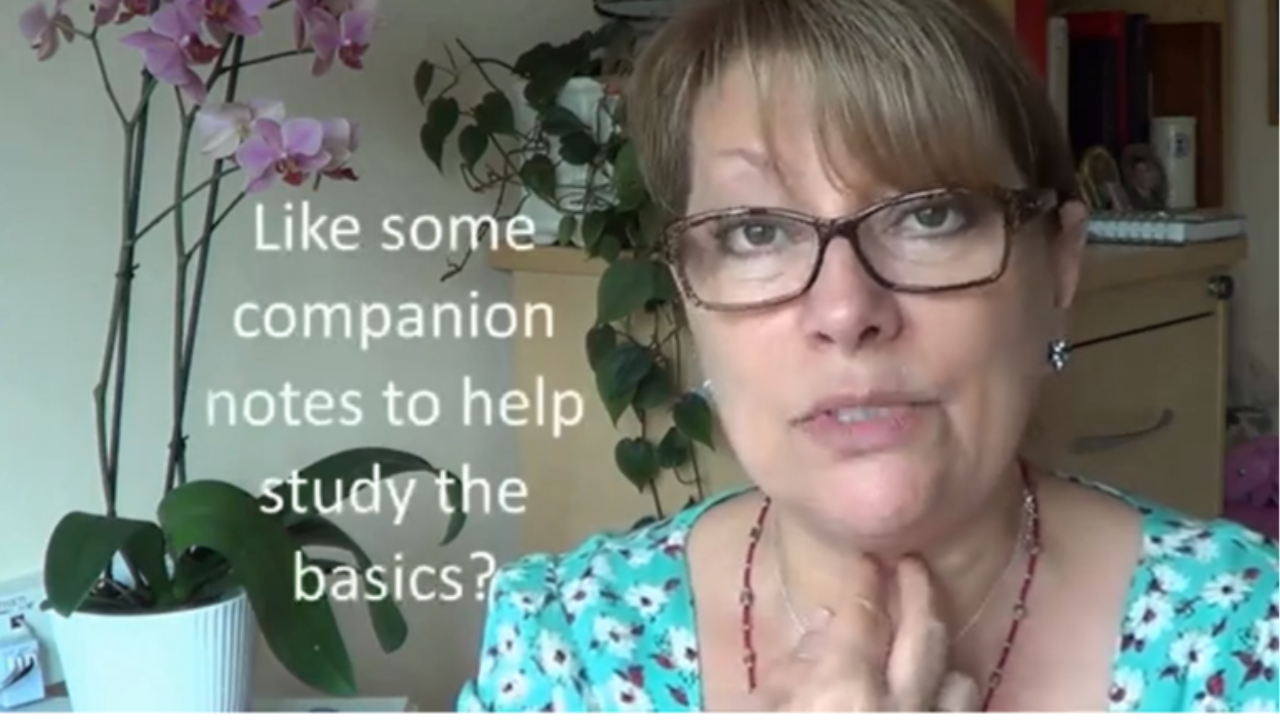
In this video ... a short introduction to the knotty problem of how consonants can sabotage your sound.
Everyone expects to sing vocal exercises on vowels, right? But not many singers will spend time examining how their consonants are formed, and how the articulators play their part.
For classical (if not all) singers, vocal technique issues around the interaction between vowels and consonants - and the relationship they have when it comes to maintaining the breath and keeping a constant airflow to the source of the sound - continue to be a source of frustration.
Understandably, singers become primarily preoccupied with their sound - thinking mostly in terms of ‘support’ and ‘vocal tone’, underpinned by such considerations as ‘breathing’ ‘onset’ and ‘resonance’, and good use of vowels to carry it along.
Yet, getting to grips with the finer details of say, the articulatory system and perhaps where associated weak links can lurk, can be a bit vague - perhaps rather hit and miss.
...

